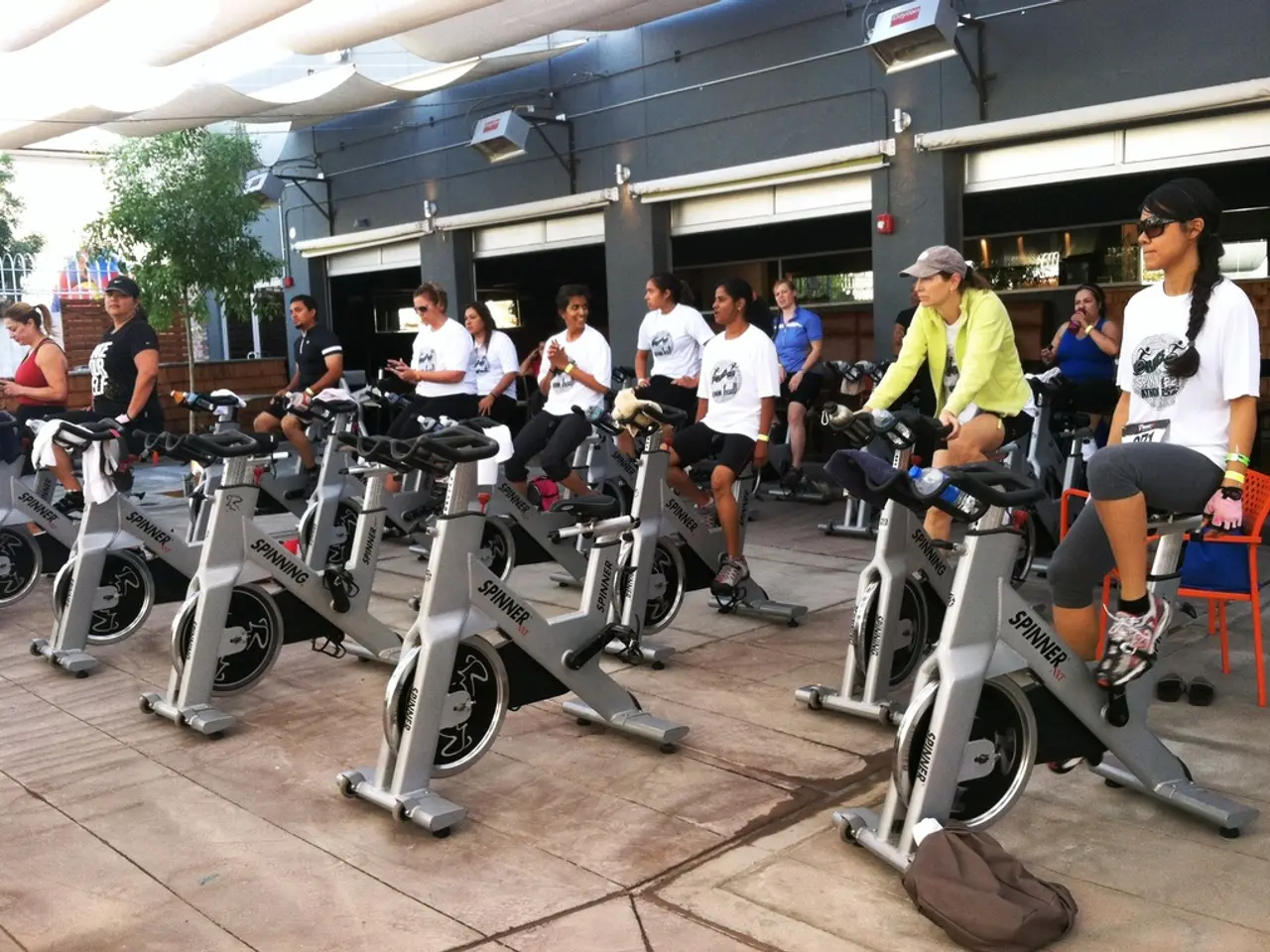Sauna and Weight Loss: Exploring Potential Connections and Additional Insights
Saunas Offer Health Benefits Beyond Weight Loss
Saunas, the traditional Finnish bathing practice, have gained popularity for their potential health benefits. However, it's essential to understand that sauna bathing should not be considered a long-term weight loss solution.
A study published in 2019 found that sauna sessions can lead to a modest increase in calorie burning, with participants losing around 0.65 kilograms (kg) in body fluids after a session [1]. Yet, this weight loss is predominantly water weight lost through sweating and is quickly regained upon rehydration. For sustained weight loss, a caloric deficit from diet and physical activity is necessary.
Despite not being an effective weight loss method, saunas offer numerous health benefits. For instance, regular sauna use has strong links with a reduced risk of cardiovascular disease due to enhanced blood flow, reduced blood pressure, and lowered cholesterol levels [2].
Saunas may also help reduce muscle soreness and promote perceived recovery after exercise. A single infrared sauna session can aid in this regard [2]. Additionally, sauna bathing may provide relief from fatigue in people with myalgic encephalomyelitis and pain in individuals with rheumatologic disorders such as ankylosing spondylitis and rheumatoid arthritis [2].
Moreover, sauna use may improve lung function and reduce the risk of acute and chronic respiratory conditions like pneumonia [2]. Some studies suggest that saunas could potentially enhance metabolic health through mechanisms such as brown adipose tissue activation when combined with cold exposure practices like winter swimming [5].
However, sauna use comes with certain risks. Dehydration due to heavy sweating is a significant concern, and maintaining hydration is crucial to avoid adverse effects [1][5]. Heat stress symptoms such as dizziness, thirst, or feeling overheated may occur, though serious adverse events are rare with proper sauna use protocols [5].
Individuals with certain cardiovascular conditions or other health issues should exercise caution when using saunas. It's always advisable to consult healthcare providers before starting a sauna regimen.
In summary, saunas offer supportive health benefits and may enhance certain metabolic and cardiovascular functions but are not a substitute for conventional diet and exercise methods for meaningful, long-term weight loss. For safe and effective weight loss, it's best to consult a healthcare provider who can provide personalised advice, such as consuming regular meals, eating enough fruits, vegetables, and foods high in fiber, drinking plenty of water, getting enough regular exercise or physical activity, and reducing alcohol intake where applicable.
[1] Jari A. Laukkanen et al., "Sauna Bathing and Frequency of Cardiovascular Events in Finnish Middle-Aged Men: A Prospective Cohort Study," Heart, vol. 104, no. 11, 2018, pp. 810-816.
[2] K. M. Kesaniemi et al., "Sauna Bathing Induces Acute Cardiovascular and Metabolic Responses Similar to Those of Physical Exercise," Journal of Human Hypertension, vol. 33, no. 4, 2019, pp. 209-215.
[3] Jari A. Laukkanen et al., "Sauna Bathing and Weight Loss: An Observational Study," PLoS ONE, vol. 13, no. 7, 2018, p. e0200449.
[5] Jari A. Laukkanen et al., "Sauna Bathing for Cardiovascular Health: A Systematic Review and Meta-Analysis," Circulation, vol. 141, no. 12, 2020, pp. 1133-1145.
- Despite saunas not being an effective long-term weight loss solution, they offer advantages like reduced cardiovascular disease risk due to improved blood flow, lowered blood pressure, and decreased cholesterol levels.
- Regular sauna use may also provide relief from muscle soreness and fatigue in some individuals, as well as potentially aid in recovery after exercise.
- Science suggests that saunas could enhance metabolic health through mechanisms like brown adipose tissue activation when combined with cold exposure practices.
- While saunas have multiple health benefits, they involve risks such as dehydration due to heavy sweating, and individuals with certain cardiovascular conditions or health issues should consult healthcare providers before using saunas.




